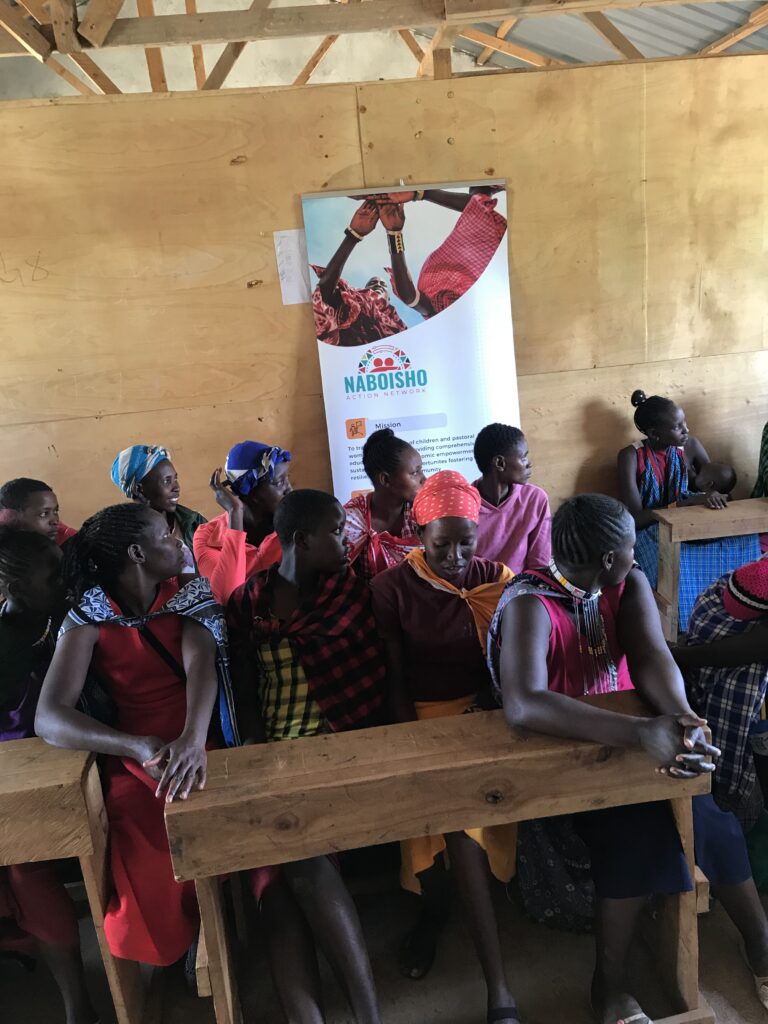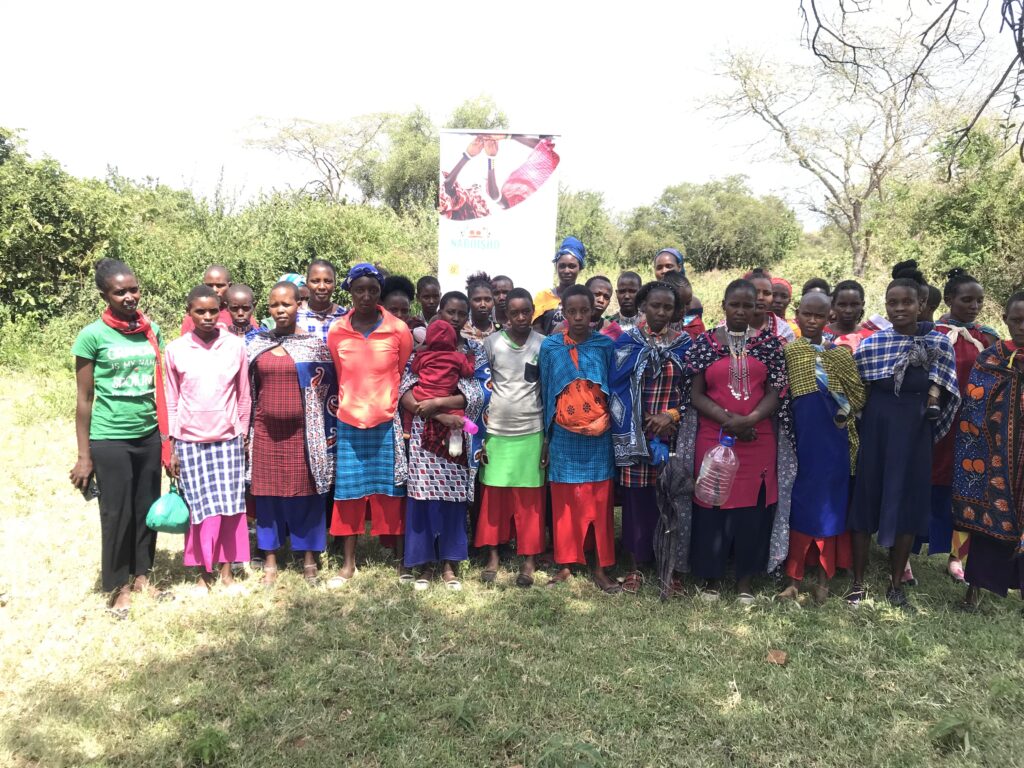Introduction to Naboisho Action Network
The Naboisho Action Network (NAN) is a transformative organization established in 2016, located in Meto, Kajiado County, Kenya. The organization was founded to address critical social challenges faced by the youth in this region, particularly focusing on the alarming rates of teenage pregnancies and inadequate educational outcomes. These issues pose significant barriers to sustainable development and hinder the overall well-being of young individuals in the community. As such, NAN has carved out a crucial role within the local landscape by advocating for youth leadership and empowerment.
With a mission centered on enhancing the potential of young leaders, the Naboisho Action Network seeks to provide the necessary resources, mentorship, and opportunities to cultivate skills that will enable youth to become active participants in their communities. The organization’s vision emphasizes the importance of fostering resilience and self-reliance among young people, equipping them to tackle the pressing challenges they encounter in their lives and communities.
NAN is committed to implementing various programs that prioritize education, health, and socio-economic empowerment, thus creating a supportive environment for youth to thrive. By focusing on unique initiatives such as educational workshops, mentorship programs, and health awareness campaigns, the organization strategically aims to reduce the rates of teenage pregnancies and improve educational outcomes. These programs not only aim to educate young people but also empower them to take charge of their futures as responsible leaders. Furthermore, the Naboisho Action Network encourages community involvement, recognizing that sustainable change is best achieved through collaborative efforts among various local stakeholders.
Empowering Young Girls: Training and Skills Development
The Naboisho Action Network has been instrumental in empowering young girls within the Meto community. Through a myriad of targeted training programs, the initiative addresses essential life skills that are crucial for personal and professional development. One of the less visible yet significant barriers to youth leadership is the lack of self-awareness among young individuals. The training sessions offered by Naboisho actively cultivate a sense of self-awareness, enabling girls to understand their strengths and weaknesses, which is fundamental in making informed decisions.
Furthermore, decision-making is a critical skill nurtured through these programs. Girls are engaged in various scenarios that require thoughtful decision-making, thereby enhancing their analytical skills. These practical exercises not only build confidence but also prepare these young women to face real-life challenges. Time management, another essential component, teaches participants to prioritize tasks effectively, thus promoting productivity and reducing stress in their academic and personal lives.
Emotional management stands out as another crucial focus area. Many young girls experience emotional turbulence, often feeling overwhelmed by societal pressures. The training modules encourage them to develop healthy coping mechanisms for handling emotions, fostering resilience and emotional intelligence. The impact of these programs is profound, with over 400 boys and girls benefitting from such training initiatives.
For instance, a participant named Aisha, who struggled with self-doubt, transformed into a confident spokesperson for her peers after completing the self-awareness sessions. Similarly, several girls have reported improved academic performance and better relationships with their families and peers as a result of enhanced emotional management techniques. These programs not only equip young girls with essential skills but also instill a sense of leadership, ultimately paving the way for a brighter future for the entire community.
Economic Empowerment of Women: A Pathway to Educational Success
The economic empowerment of women plays a pivotal role in advancing educational opportunities for children, particularly in communities where traditional gender roles often limit women’s involvement in income-generating activities. The Naboisho Action Network has recognized this correlation and initiated various programs aimed at enhancing women’s livelihoods through targeted capacity-building training. These initiatives not only foster sustainable economic growth but also contribute significantly to the educational success of the next generation.
One of the core strategies implemented by Naboisho is the establishment of kitchen gardens. By encouraging women to cultivate their own food, this program improves nutritional intake and allows for the sale of surplus produce, generating additional income. As women gain financial autonomy, they are better positioned to invest in their children’s education, providing necessary resources such as school supplies and transportation. This initiative aligns with research indicating that financially empowered mothers are more likely to prioritize educational attainment for their children, thereby reducing dropout rates.
Moreover, enhancing digital literacy among women is a crucial component of Naboisho’s approach. Training courses that focus on basic computer skills and internet usage have opened new avenues for women, enabling them to engage with online learning platforms and remote job opportunities. This shift not only broadens their skill set but also prepares them to support their children’s schoolwork, fostering an environment conducive to educational growth. Additionally, the development of poultry farming ventures has proven effective in creating sustainable income sources. Women involved in poultry farming can establish small businesses that financially empower them and allow for reinvestment in their families’ educational needs. As a result, these strategic initiatives collectively create a reinforcing loop between women’s economic empowerment and improved educational outcomes for children, significantly altering the socio-economic landscape of the community.
Building a Resilient Community for Future Generations
The Naboisho Action Network stands as a beacon of hope and strategic foresight, driving initiatives aimed at building a resilient community where every child has the opportunity to thrive, and every woman possesses the resources to support her family. The mission is particularly focused on young women aged 15-24, with special attention given to newly married women who often emerge from early marriages. By addressing the unique challenges these young women face, Naboisho strives to empower them through various targeted programs.
Central to Naboisho’s approach is the emphasis on education and vocational training. These programs not only equip women with practical skills but also foster a sense of agency necessary for sustainable development. The organization recognizes that education is a crucial component in breaking the cycle of poverty. It enables young women to contribute economically and socially, thereby enhancing their family units and the broader community.
In addition to educational initiatives, Naboisho has established support networks connecting young women with successful role models. By facilitating mentorship opportunities, these networks encourage resilience and inspire personal growth. The sharing of experiences and strategies among peers is invaluable, as it cultivates a community of support and empowerment. This initiative is designed to strengthen social bonds and foster collaboration among young women, allowing them to navigate the complexities of early marriage and societal expectations.
Furthermore, Naboisho’s strategic plan encompasses health and wellness programs tailored for young women. These initiatives address not only physical health but also mental and emotional well-being, recognizing the holistic needs of individuals as they strive to become contributing members of society. By empowering youth through education and support, Naboisho envisions a brighter future where community resilience thrives, ultimately leading to the upliftment of future generations.


